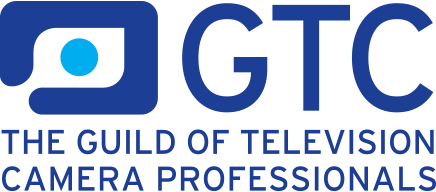Coming Up

-
Budgets and Digits: Freelance Finance Skills
9 Dec 25 @ Online

-
MPTS 2026
13 May 26 @ London, W14 8UX

Sponsor News
How do I become a Camera Operator?
Being a professional camera operator isn't just about pointing a camera and getting nice pictures. There is much more to it than that. Ask yourself a few questions:
- Am I passionate about pictures, both still and moving?
- Do I have normal colour vision?
- Am I reasonably fit and active?
- Can I work with people, even people I dislike or whose views I disagree with, without openly displaying my own feelings?
- Can I assess a situation and make an immediate decision?
- Can I visualise what a picture would look like without having to go and stand in the place I would take it from?
- Do I know how to control depth of field?
- Can I choose the correct lens and angle of view for a particular shot?
- Do I know how colour balance affects a picture?
- Would a camera on a mounting or a handheld one be more appropriate?
How did you do? If you scored ‘Yes' to the first five questions, you have the basic attributes that a good, all-round camera operator needs. The rest will come with training and experience. Make no mistake though, it won't be easy and probably won't happen quickly. As you master the basics, there will also be fast-moving technology to contend with; new cameras and recording formats, changes in workflow driven by tapeless media and post production requirements.
Getting started
Unlike the film industry, there isn't a formal route to becoming a television camera operator. The days of major broadcasters, especially the BBC in the United Kingdom, training their camera crew in-house to a very high level have all but disappeared. Today, many camera operators enter the industry via colleges or universities offering courses in film and television production. If that is the route you choose, look carefully at what each course is offering, and ask how much practical work there would be on cameras, the type of equipment they have in their studios and for location work, and whether the course uses visiting lecturers who currently work on camera. Many courses concentrate more on production than acquisition, so make sure that the course you choose will give you a good grounding in and knowledge of the basics of camerawork.
An alternative route is to initially work for a facilities house or rental company. It may seem a little strange, but you would get to know the equipment and how it all fits together, and most importantly, meet some of the clients and camera operators taking delivery ready for a shoot. Television camera operators are generally a pretty friendly bunch of people, and if you show an interest and have taken the time to do some research, many will take the time to explain how and why things work. This could help lead on to the next method, learning ‘on the job'.
Useful contacts
Learning on the job doesn't mean just picking up a camera and offering yourself as a camera crew member! It means finding a camera operator or camera crew who will help you gain the skills needed to work on camera in your own right. Initially, where possible, and if the various insurances permit, you may get the chance to observe studio or location operations. There is a lot to take in, and don't think that because you are not at college there is less reading and learning to do. The difference is that you will be covering just the relevant areas on your own with guidance from your mentors, but will also get the opportunity to get to know some of the equipment they are using. That can often lead to paid work as a camera assistant and a further chance to hone your skills.
If you decide a career working with television cameras is for you, whether in multi- or single camera, drama, entertainment, sport, documentary, wildlife, newsgathering, or a combination of the various disciplines, come back to the GTC website www.gtc.tv and take a look around. You could even join us as a Student member and get access to the resources only available to our members.
Getting started with your career in television article
During the GTC Bill Vinten Awards 2023, our Education Officer, Luke Sheehan organised a panel discussion, 'Getting Started with Your Career in Television' at Coventry University for students and graduates.
Panel consisted of:
- James Watson
- Alexander Lines
- Fiona Schimmel
- Hannah Mellish
- moderated by Graham Maunder













.jpg)
